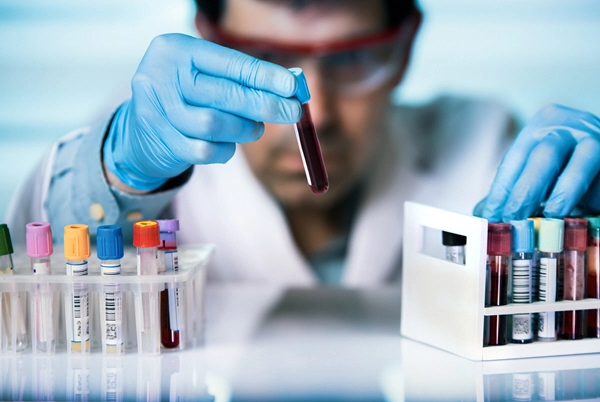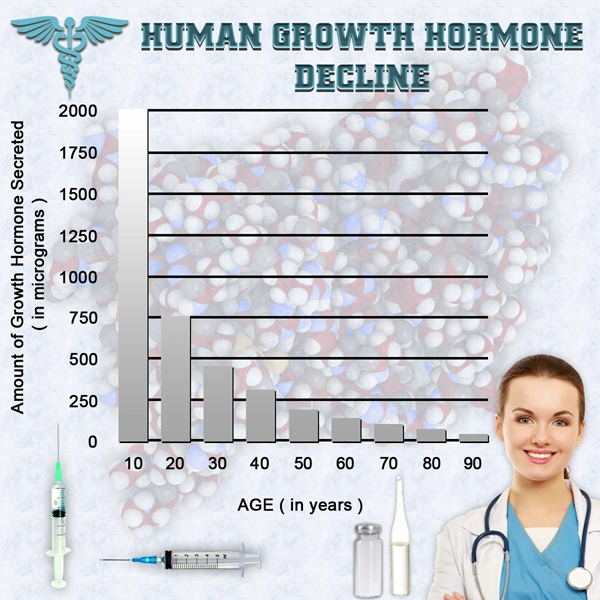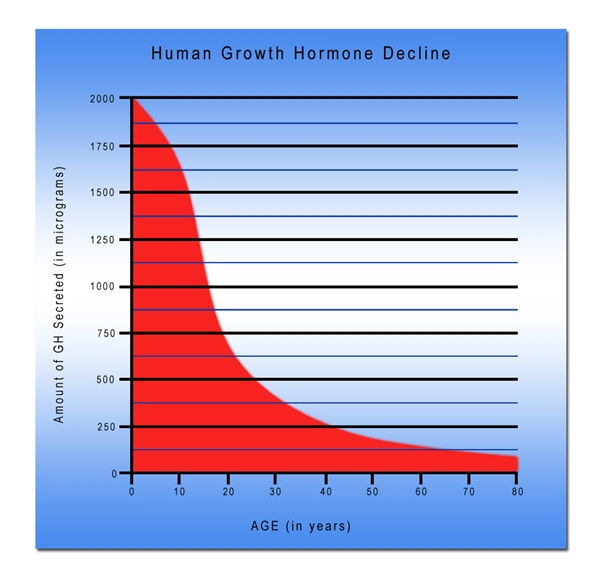Introduction
Obesity has emerged as a significant public health concern in the United States, with a notable impact on American men. The prevalence of overweight and obesity among this demographic has spurred extensive research into effective weight loss interventions. This article presents a systematic review and meta-analysis aimed at evaluating the efficacy of various weight loss strategies specifically tailored for overweight American men. By synthesizing the available evidence, we aim to provide insights that can guide healthcare professionals in managing this prevalent condition.
Methodology of the Review
The systematic review and meta-analysis incorporated a broad range of studies that focused on weight loss interventions in overweight American men. Databases such as PubMed, Embase, and the Cochrane Library were searched for relevant studies published between 2000 and 2022. Inclusion criteria encompassed randomized controlled trials, cohort studies, and other observational studies that reported on the effectiveness of interventions such as dietary modifications, exercise regimens, pharmacological treatments, and behavioral therapies. The primary outcome measure was the reduction in body weight or body mass index (BMI).
Key Findings on Dietary Interventions
Dietary interventions emerged as a cornerstone in the management of overweight in American men. Studies reviewed showed that low-carbohydrate and ketogenic diets were particularly effective in achieving significant weight loss. On average, participants following these diets lost between 5% to 10% of their initial body weight over a 6 to 12-month period. Additionally, the Mediterranean diet, known for its emphasis on whole grains, healthy fats, and lean proteins, also demonstrated favorable outcomes, with weight reductions ranging from 3% to 7%.
Exercise Regimens and Their Impact
Physical activity was another critical component of successful weight loss interventions. The meta-analysis revealed that structured exercise programs, which included a combination of aerobic and resistance training, were highly effective. Men who engaged in at least 150 minutes of moderate-intensity aerobic activity per week, supplemented with resistance training twice a week, experienced significant weight loss, averaging around 4% to 8% of their initial body weight. These findings underscore the importance of incorporating regular exercise into weight management strategies.
Pharmacological Approaches to Weight Loss
Pharmacological interventions, including medications such as orlistat, liraglutide, and semaglutide, were also examined. These drugs were found to be effective in promoting weight loss when used in conjunction with lifestyle modifications. On average, participants using these medications achieved weight losses of 5% to 10% over a 12-month period. However, it is crucial to consider the potential side effects and the necessity for long-term monitoring when prescribing these medications.
Behavioral Therapies and Their Role
Behavioral therapies, including cognitive-behavioral therapy (CBT) and motivational interviewing, were shown to enhance the success of weight loss interventions. These therapies helped participants develop healthier eating habits and increase their adherence to exercise programs. The meta-analysis indicated that men who underwent behavioral therapy lost an additional 2% to 5% of their body weight compared to those who did not receive such interventions.
Conclusion and Recommendations
The systematic review and meta-analysis highlight the multifaceted approach required for effective weight loss in overweight American men. A combination of dietary modifications, regular exercise, pharmacological treatments, and behavioral therapies appears to yield the best outcomes. Healthcare providers should tailor interventions to individual needs, considering factors such as lifestyle, preferences, and medical history. Future research should focus on long-term sustainability and the prevention of weight regain, as these remain significant challenges in the management of obesity.
In conclusion, the fight against obesity in American men necessitates a comprehensive and personalized approach. By leveraging the insights from this review, healthcare professionals can better equip themselves to support their patients in achieving and maintaining a healthier weight.

- Understanding and Treating Erectile Dysfunction: A Comprehensive Guide for American Men [Last Updated On: March 2nd, 2025] [Originally Added On: March 2nd, 2025]
- Optimizing Men's Health: Strategic Use of Supplements for American Males [Last Updated On: March 17th, 2025] [Originally Added On: March 17th, 2025]
- Top Modern Fitness Trends Transforming Men's Health in America [Last Updated On: March 18th, 2025] [Originally Added On: March 18th, 2025]
- Meditation's Impact on Men's Mental Health: Stress Relief, Resilience, and Well-being [Last Updated On: March 18th, 2025] [Originally Added On: March 18th, 2025]
- Osteoporosis in Men: Prevention and Management Strategies for Bone Health [Last Updated On: March 18th, 2025] [Originally Added On: March 18th, 2025]
- Stress and Heart Health: Impacts and Management Strategies for American Men [Last Updated On: March 18th, 2025] [Originally Added On: March 18th, 2025]
- Addressing Mental Health Stigma in American Men: Challenges and Strategies for Change [Last Updated On: March 19th, 2025] [Originally Added On: March 19th, 2025]
- Physical Activity's Role in Cancer Prevention for American Men: Strategies and Benefits [Last Updated On: March 19th, 2025] [Originally Added On: March 19th, 2025]
- Hydration's Vital Role in Men's Health: Benefits and Practical Tips [Last Updated On: March 19th, 2025] [Originally Added On: March 19th, 2025]
- Gut Health's Role in American Males' Wellness: Microbiome, Mental, and Cardiovascular Health [Last Updated On: March 20th, 2025] [Originally Added On: March 20th, 2025]
- Managing Allergies in American Men: Triggers, Strategies, and Workplace Solutions [Last Updated On: March 21st, 2025] [Originally Added On: March 21st, 2025]
- Gout in American Men: Causes, Symptoms, and Management Strategies [Last Updated On: March 21st, 2025] [Originally Added On: March 21st, 2025]
- Work-Life Balance Impact on American Men's Health: Strategies for Improvement [Last Updated On: March 21st, 2025] [Originally Added On: March 21st, 2025]
- Sleep Apnea in American Men: Symptoms, Risks, and Management Strategies [Last Updated On: March 21st, 2025] [Originally Added On: March 21st, 2025]
- Understanding and Overcoming Male Infertility: Causes, Diagnosis, and Treatment Options [Last Updated On: March 21st, 2025] [Originally Added On: March 21st, 2025]
- Mental Health Days: Essential for American Men's Well-being and Productivity [Last Updated On: March 22nd, 2025] [Originally Added On: March 22nd, 2025]
- Asthma in Men: Understanding Risks, Symptoms, and Tailored Management Strategies [Last Updated On: March 22nd, 2025] [Originally Added On: March 22nd, 2025]
- Dental Health's Crucial Role in Men's Overall Wellness and Life Quality [Last Updated On: March 22nd, 2025] [Originally Added On: March 22nd, 2025]
- Alcohol's Impact on Liver Health in American Males: Prevention and Management Strategies [Last Updated On: March 23rd, 2025] [Originally Added On: March 23rd, 2025]
- Dietary Strategies for Enhancing Prostate Health in American Men [Last Updated On: March 23rd, 2025] [Originally Added On: March 23rd, 2025]
- High Cholesterol in American Men: Risks, Management, and Prevention Strategies [Last Updated On: March 23rd, 2025] [Originally Added On: March 23rd, 2025]
- Swimming: Enhancing Men's Health from Heart to Mind [Last Updated On: March 23rd, 2025] [Originally Added On: March 23rd, 2025]
- Caffeine's Impact on American Men's Health: Benefits and Risks [Last Updated On: March 24th, 2025] [Originally Added On: March 24th, 2025]
- Strength Training: Enhancing Health, Mental Well-being, and Longevity for American Men [Last Updated On: March 24th, 2025] [Originally Added On: March 24th, 2025]
- Exercise Benefits and Strategies for Men Managing Diabetes [Last Updated On: March 24th, 2025] [Originally Added On: March 24th, 2025]
- Effective Strategies for American Men to Quit Smoking and Improve Health [Last Updated On: March 24th, 2025] [Originally Added On: March 24th, 2025]
- Obesity and Cancer Risks in American Men: Understanding and Mitigating the Link [Last Updated On: March 24th, 2025] [Originally Added On: March 24th, 2025]
- Dietary Fiber: Essential Health Benefits for American Men [Last Updated On: March 24th, 2025] [Originally Added On: March 24th, 2025]
- Kidney Stones in American Men: Causes, Symptoms, and Management Strategies [Last Updated On: March 25th, 2025] [Originally Added On: March 25th, 2025]
- Hemorrhoids in American Men: Causes, Symptoms, Management, and Prevention Strategies [Last Updated On: March 25th, 2025] [Originally Added On: March 25th, 2025]
- Proactive Health Strategies for American Men: Screenings, Lifestyle, and Mental Well-being [Last Updated On: March 25th, 2025] [Originally Added On: March 25th, 2025]
- Managing Anxiety in American Men: Tools and Techniques for a Healthier Life [Last Updated On: March 25th, 2025] [Originally Added On: March 25th, 2025]
- Social Connections: Vital for American Men's Mental Health and Well-being [Last Updated On: March 25th, 2025] [Originally Added On: March 25th, 2025]
- Sleep's Vital Role in Weight Management for American Men [Last Updated On: March 25th, 2025] [Originally Added On: March 25th, 2025]
- Seasonal Affective Disorder in American Men: Symptoms, Impact, and Management Strategies [Last Updated On: March 25th, 2025] [Originally Added On: March 25th, 2025]
- Stroke Risks and Prevention Strategies for American Men [Last Updated On: March 26th, 2025] [Originally Added On: March 26th, 2025]
- Annual Physicals: Essential for Men's Health and Disease Prevention in the U.S. [Last Updated On: March 26th, 2025] [Originally Added On: March 26th, 2025]
- Hiking: Enhancing Men's Physical, Mental, and Social Health in America [Last Updated On: March 26th, 2025] [Originally Added On: March 26th, 2025]
- Depression in Men: Symptoms, Treatment Options, and the Importance of Seeking Help [Last Updated On: March 27th, 2025] [Originally Added On: March 27th, 2025]
- Tai Chi Benefits for American Men: Health, Strength, and Mental Clarity [Last Updated On: March 27th, 2025] [Originally Added On: March 27th, 2025]
- Workplace Mental Health Initiatives: Enhancing American Men's Well-being and Productivity [Last Updated On: March 27th, 2025] [Originally Added On: March 27th, 2025]
- Plant-Based Diets: Health Benefits for American Men's Heart, Weight, and Mental Well-being [Last Updated On: March 27th, 2025] [Originally Added On: March 27th, 2025]
- Pilates Benefits for American Men: Core Strength, Flexibility, and Mental Health [Last Updated On: March 27th, 2025] [Originally Added On: March 27th, 2025]
- Arthritis in American Men: Understanding, Preventing, and Managing the Condition Effectively [Last Updated On: March 27th, 2025] [Originally Added On: March 27th, 2025]
- Stress and Digestive Health in American Males: Understanding and Managing the Gut-Brain Axis [Last Updated On: March 27th, 2025] [Originally Added On: March 27th, 2025]
- Breaking Stigma: The Crucial Role of Mental Health Screening for American Men [Last Updated On: March 28th, 2025] [Originally Added On: March 28th, 2025]
- Varicose Veins in Men: Causes, Symptoms, and Treatment Options [Last Updated On: March 28th, 2025] [Originally Added On: March 28th, 2025]
- Insomnia in American Men: Impacts, Strategies, and Solutions for Better Sleep [Last Updated On: March 28th, 2025] [Originally Added On: March 28th, 2025]
- Cycling Benefits for American Men: Enhancing Health and Well-being [Last Updated On: March 28th, 2025] [Originally Added On: March 28th, 2025]
- Diet and Heart Disease in American Men: Key Factors and Healthy Eating Strategies [Last Updated On: March 29th, 2025] [Originally Added On: March 29th, 2025]
- Routine Eye Exams: Essential for Men's Vision and Overall Health [Last Updated On: March 30th, 2025] [Originally Added On: March 30th, 2025]
- Environmental Pollution's Impact on Men's Health: Risks and Mitigation Strategies [Last Updated On: March 30th, 2025] [Originally Added On: March 30th, 2025]
- Antioxidants: Boosting Health and Preventing Disease in American Men [Last Updated On: April 1st, 2025] [Originally Added On: April 1st, 2025]
- Breaking the Stigma: Enhancing Men's Mental Health Through Education and Awareness [Last Updated On: April 2nd, 2025] [Originally Added On: April 2nd, 2025]
- Rowing's Rise: Health Benefits for American Men's Fitness and Well-being [Last Updated On: April 3rd, 2025] [Originally Added On: April 3rd, 2025]
- Migraines in Men: Symptoms, Triggers, and Effective Management Strategies [Last Updated On: April 5th, 2025] [Originally Added On: April 5th, 2025]
- Back Pain in Men: Causes, Prevention, and Management Strategies [Last Updated On: April 5th, 2025] [Originally Added On: April 5th, 2025]
- Community Impact on Men's Health: Social Connections, Programs, and Preventive Care in America [Last Updated On: April 6th, 2025] [Originally Added On: April 6th, 2025]
- Martial Arts: Enhancing Men's Health and Lifestyle in the U.S. [Last Updated On: April 6th, 2025] [Originally Added On: April 6th, 2025]
- Skin Cancer in American Men: Risks, Prevention, and Early Detection Strategies [Last Updated On: April 6th, 2025] [Originally Added On: April 6th, 2025]
- Alcohol and Mental Health: A Critical Analysis Among American Males [Last Updated On: April 8th, 2025] [Originally Added On: April 8th, 2025]
- Technology's Dual Impact on U.S. Men's Health: Challenges and Solutions [Last Updated On: April 9th, 2025] [Originally Added On: April 9th, 2025]
- Essential Vitamins for Men's Health: D, B12, C, E, K Benefits and Sources [Last Updated On: April 10th, 2025] [Originally Added On: April 10th, 2025]
- Obesity and Diabetes: A Critical Health Concern for American Men [Last Updated On: April 11th, 2025] [Originally Added On: April 11th, 2025]
- Hearing Health for American Men: Prevention, Impact, and Technological Solutions [Last Updated On: April 11th, 2025] [Originally Added On: April 11th, 2025]
- Running's Health Benefits for American Men: Cardiovascular, Weight, Mental, Bone, Diabetes [Last Updated On: April 12th, 2025] [Originally Added On: April 12th, 2025]
- Managing Panic Attacks in American Men: Symptoms, Strategies, and Support [Last Updated On: April 13th, 2025] [Originally Added On: April 13th, 2025]
- CrossFit: Enhancing American Men's Health Through Fitness and Community [Last Updated On: April 14th, 2025] [Originally Added On: April 14th, 2025]
- Managing IBS in American Men: Symptoms, Diet, Lifestyle, and Mental Health Strategies [Last Updated On: April 15th, 2025] [Originally Added On: April 15th, 2025]
- Transforming Men's Mental Health: The Power of Awareness Campaigns in America [Last Updated On: April 16th, 2025] [Originally Added On: April 16th, 2025]
- Joint Pain in American Men: Causes, Prevention, and Management Strategies [Last Updated On: April 17th, 2025] [Originally Added On: April 17th, 2025]
- Lung Cancer in American Men: Risks, Symptoms, and Prevention Strategies [Last Updated On: April 18th, 2025] [Originally Added On: April 18th, 2025]
- Basketball's Impact on Men's Health: Physical, Mental, and Social Benefits [Last Updated On: April 19th, 2025] [Originally Added On: April 19th, 2025]
- Soccer: Enhancing American Men's Health from Heart to Mind [Last Updated On: April 19th, 2025] [Originally Added On: April 19th, 2025]
- Diet and Mental Health: Key Nutrients and Strategies for American Men [Last Updated On: April 19th, 2025] [Originally Added On: April 19th, 2025]
- Family Support: Enhancing Health and Wellbeing of American Men [Last Updated On: April 19th, 2025] [Originally Added On: April 19th, 2025]
- Obesity and Heart Disease in American Men: Risks, Mechanisms, and Interventions [Last Updated On: April 20th, 2025] [Originally Added On: April 20th, 2025]
- Mental Health First Aid: A Lifeline for American Men's Well-being [Last Updated On: April 20th, 2025] [Originally Added On: April 20th, 2025]
- Bipolar Disorder in American Men: Symptoms, Treatment, and Holistic Management Strategies [Last Updated On: April 22nd, 2025] [Originally Added On: April 22nd, 2025]
- Prostate Cancer Screening Enhances Survival Rates in American Men: A Retrospective Study [Last Updated On: April 22nd, 2025] [Originally Added On: April 22nd, 2025]



List of USA state clinics - click a flag below for blood testing clinics.
Word Count: 584


















































